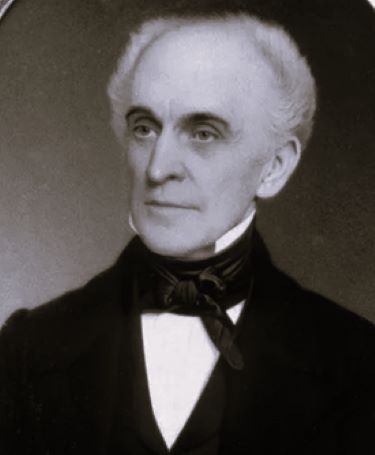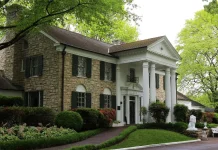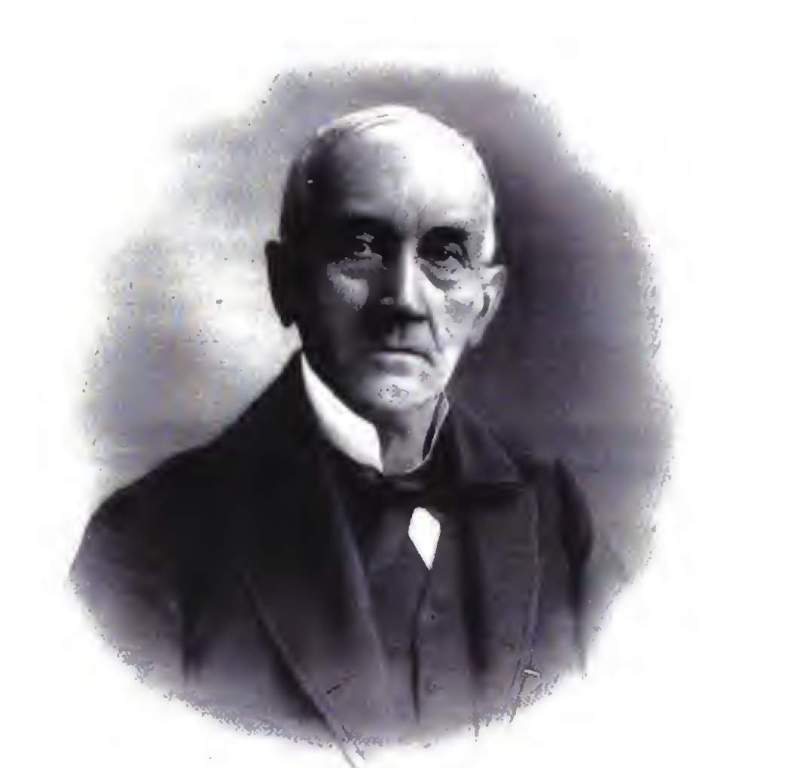The Edward Coles was the second Governor of the State of Illinois. Edward Coles was born in Albemarle County, Va., Dec. 15, 1786. He was the son of a wealthy planter, who had been a Colonel in the Revolutionary War; was educated at Hampden-Sidney and William and Mary Colleges, but compelled to leave before graduation by an accident which interrupted his studies. In 1809, he became the private secretary of President Madison, remaining six years, after which he made a trip to Russia as a special messenger by appointment of the President.
Edward Coles early manifested an interest in the emancipation of the slaves of Virginia. In 1815 he made his first tour through the Northwest Territory, going as far west as St. Louis, returning three years later and visiting Kaskaskia while the Constitutional Convention of 1818 was in session.
In April of the following year he set out from his Virginia home, accompanied by his slaves, for Illinois, traveling by wagons to Brownsville, Pa., where, taking flat-boats, he descended the river with his goods and servants to a point below Louisville, where they disembarked, journeying overland to Edwardsville. While descending the Ohio, he informed his slaves that they were free, and, after arriving at their destination, gave to each head of a family 160 acres of land. This generous act was, in after years, made the ground for bitter persecution by his enemies.
At Edwardsville Edward Coles entered upon the duties of Register of the Land Office, to which lie had been appointed by President Monroe. In 1822 he became the candidate for Governor of those opposed to removing the restriction in the State Constitution against the introduction of slavery, and, although a majority of the voters then favored the measure.
Edward Coles was elected by a small plurality over his highest competitor in consequence of a division of the opposition vote between three candidates. The Legislature chosen at the same time submitted to the people a proposition for a State Convention to revise the Constitution, which was rejected at the election of 1824 by a majority of 1,668 in a total vote of 11,612.
While Governor Coles had the efficient aid in opposition to the measure of such men as Judge Samuel D. Lockwood, Congressman Daniel P. Cook, Morris Birkbeck, George Forquer, Hooper Warren, George Churchill and others, he was himself a most influential factor in protecting Illinois from the blight of slavery, contributing his salary for his entire term (§4,000) to that end. In 1825 it became his duty to welcome La Fayette to Illinois.
Retiring from office in 1826, he continued to reside some years on his farm near Edwardsville, and, in 1830, was a candidate for Congress, but being a known opponent of General Jackson, was defeated by Joseph Duncan. Previous to 1833, he removed to Philadelphia, where he married during the following year. Edward Cole continued to reside there until his death, July 7, 1868, having lived to see the total extinction of slavery in the United States. Read More: Battle of the Bulge







